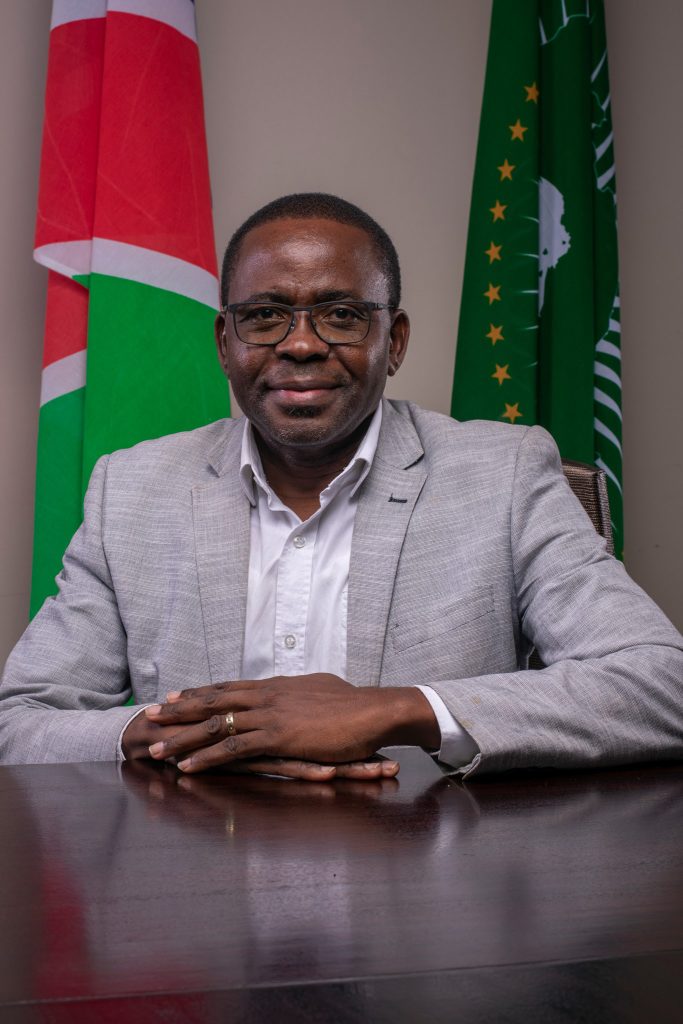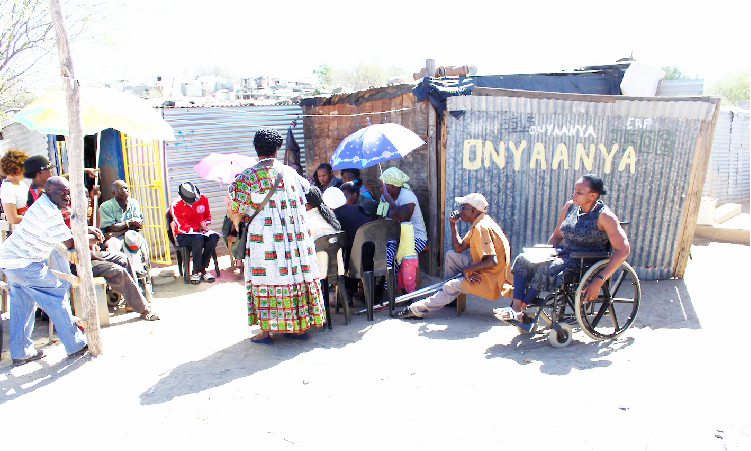… while 901 300 young people register to vote
About 21 700 people with disabilities have been registered as voters for the upcoming November national elections.
Electoral Commission of Namibia (ECN) chief electoral officer Peter Shaama yesterday said this while announcing the provisional voters registration breakdown in Windhoek.
According to Shaama, this includes 16 128 people with physically disabilities, 1 744 people who are deaf, 3 202 who are blind and 711 people with artificial limbs.
The majority of registered voters are from the younger generation, as 56% of registered voters are between the ages of 18 and 34.
“The generation born in 1982 and onwards represents 901 316 of registered voters, and constitutes the majority of our electorate,” said Shaama.

The ECN has registered 1 467 604 voters in the country and at all diplomatic missions abroad, which constitute 91% of eligible voters.
Shaama said 46% of registered voters are men, while 54% are women.
The National Federation for Persons with Disabilities in Namibia, represented by Mathew Hashoongo, urges all political parties to include people with disabilities in their party list to be sent to parliament.
“Prior to the independence of Namibia, Namibians fought as one, and our fight was for all. Post independence, Namibia ratified several conventions on the protection of people with disabilities,” he says.
Hashoongo says the country needs to strengthen inclusive policies, and the Constitution must be amended to break barriers that are discriminatory and sideline people with disabilities.
People with disabilities need to represent themselves and have freedom of movement, association and to be the masters of their own lives.
“We need opportunities to make decisions,” says Hashoongo.
He urges parties campaigning for the National Assembly to take the inclusion agenda seriously.
“We urge our members to be serious with politics for the betterment of their lives,” says Hashoongo.
Meanwhile, Landless People’s Movement (LPM) human rights command leader Joyce Muzengua urges the decision-making bodies of the state to ensure the involvement of young people by all means.
She says the parties with significant youth leadership are more likely to attract the youth vote, compared to parties that carry ‘fossils’.
“The LPM made it its prerogative to have 60% of the youth top its parliamentary list for fair representation of the vast majority of the Namibian population,” Muzengua says.
She says the party has the majority of the youth leadership in its top structures.
Swapo Party Youth League member Willem Amutenya says the number of registered young people is a testimony that the Namibian youth care about the future.
“The youth are interested in being part of this formal decision-making process for their future,” he says.
Amutenya says it was collective advocacy that changed young people’s views about politics and voting.
“This is a generational victory! This to me should ring a bell that our pending challenges and aspirations should be addressed too. Therefore, the youth votes should be respected and taken seriously,” he says.
He, however, says there is still a bigger exercise, which is “ casting the youth’s vote on 27 November 2024”.
Amutenya urges all political players to be part of the campaign exercise.
“We should play a role in our respective political parties guided by political tolerance, understanding and unity of common purpose,” he says.
Stay informed with The Namibian – your source for credible journalism. Get in-depth reporting and opinions for
only N$85 a month. Invest in journalism, invest in democracy –
Subscribe Now!






